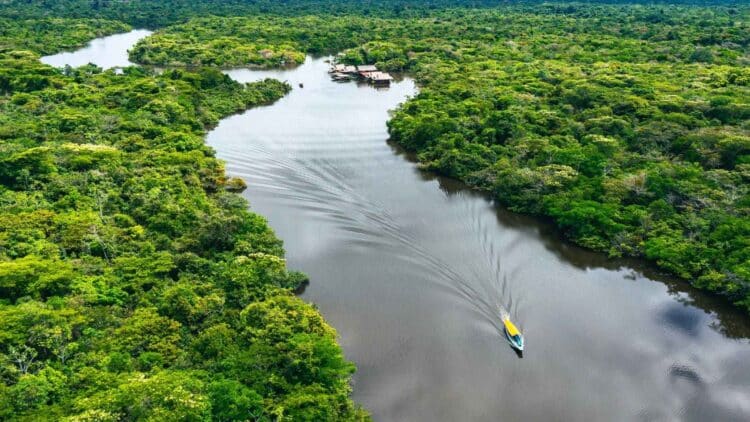Sudan has announced the extension of flood warnings along the Nile River. According to officials, this is due to rising and erratic water levels caused by Ethiopia’s Grand Ethiopian Renaissance Dam (GERD). This announcement comes during a period of increased tensions between Ethiopia, Sudan, and Egypt, which center on the potential risks posed by the dam to downstream countries, particularly during the rainy season. This period causes the Nile to flood, and the risks are heightened.
Ethiopia sees the GERD dam as vital for energy independence
GERD is Africa’s largest hydroelectric dam. Ethiopia sees the dam as vital for energy independence, economic development, and local progress, while Sudan and Egypt focus on protecting water security and regional stability.
Reports suggest GERD’s first reservoir filling may have resulted from rain or Ethiopian action. Ethiopia’s water minister said heavy rain and runoff exceeded outflow, causing pooling. Sudan’s irrigation ministry noticed changes in Nile flows, which implies Ethiopia may have shut the dam’s gates.
Lack of information has worried Sudanese officials, who claim unilateral Ethiopian actions complicate flood control. Ethiopia has experienced localized flooding that has submerged houses and farms.
Minister Habtamu Itefa Geleta claimed:
“The flood in Sudan could be from White Nile. If GERD had not been there, the magnitude could have been devastating. GERD played a significant role in reducing the catastrophic effect.”
Egypt gets over 90% of its freshwater from the Nile and has pushed back against Ethiopia. Egypt took the issue to the UN Security Council, claiming the dam breaches international relations and peace by filling without a binding agreement.
Egypt seeks a legally binding agreement to secure its share of the water
For the past two years, talks among the three countries have stalled. Earlier this year, Ethiopia, Egypt, and Sudan agreed to resume technical-level talks. Ethiopian PM Abiy Ahmed said the countries addressed ‘misunderstood issues’ and were optimistic about the ‘win-win’ solutions they sought.
Even after attempts to revive negotiations, the core issues remain unresolved. Ethiopia wants the dam and its water to be unregulated. Sudan asks the dam’s operators to ensure there is no flooding or misuse of the water system.
Even after attempts to revive negotiations, the core issues remain unresolved. Ethiopia wants the dam and its water to be unregulated. Sudan asks the dam’s operators to ensure there is no flooding or misuse of the water system.
Egyptian Foreign Ministry spokesperson Tamim Khallaf stated:
“Ethiopia built the dam unilaterally without any prior notification, proper consultations, or consensus with downstream countries, thereby constituting a grave violation of international law and posing an existential threat.”
The GERD reservoir holds up to 74 billion cubic meters of water. Ethiopia has expanded its ambitions to become a power hub in Eastern Africa and more than doubled its energy potential to fulfill the GERD’s promises.
The dam has a significant emotional impact on Sudan and Egypt
Their concerns center on water access, agriculture, disaster preparation, and, most importantly, their people.
The American and African international entities, the United Nations and the African Union, maintained a commitment to peace for the three countries to follow. The preservation of peace must be upheld by all. Each country is expected to maintain national peace and stability. All parties must adhere to the established order of peace.
Former Egyptian Assistant Foreign Minister Mohamed Hegazy added:
“The inauguration amounted to an unprecedented hostile unilateral act.”
He warns that Egypt could again seek UN intervention or pressure Ethiopia through international partners.
Sudan and Egypt waited for people to respect dam laws, while they kept the peace to prevent people from producing food. Ominous and growing are the unfair consequences for many under the peace supported by American and African international entities. Everyone knows the Nile.
The preceding statements outline the anticipated peace initiative that is to be sustained in the country. Everyone is awaiting the development of lunch resources on the national lake.
The preceding statements outline the anticipated peace initiative that is to be sustained in the country. Everyone is awaiting the development of lunch resources on the national lake.


